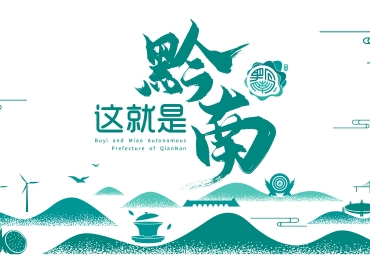Training boosts incomes of Zhijin county 'seamstresses'
More than 1,000 women from Zhijin county in southwestern China's Guizhou province who are proficient in embroidery and batik making have received training to better promote the local arts and earn more income since 2012.
Local women often learn embroidery and batik making, the traditional handicrafts of the Miao ethnic group, when they are young.
Miao embroidery and batik are important parts of Chinese intangible cultural heritage, but many of the women making the delicate handicrafts lived in poverty because they did not know how to sell their work at a good price.
The training, supported by the All-China Federation of Industry and Commerce, is part of a campaign it launched to support the county's rural vitalization.
Zhijin county, which has a population of 1.25 million, was lifted out of poverty last year, but the assistance relationship has continued.
By August, 318 enterprises had established paired assistance relationships with 332 villages in Zhijin.
Companies stepped in to help promote the handicrafts, with "seamstresses in Zhijin county "becoming a calling card that has helped increase local incomes. Many women from Zhijin have begun selling their works on livestreamed social platforms.
Guizhou's rural vitalization commission said since a paired assistance relationship was established between the federation and Zhijin 27 years ago, 175 million yuan ($27 million) has been invested in the county. More than 60 projects have been carried out to reduce poverty, benefiting over 50,000 local residents.
A poverty alleviation program carried out by the federation from the end of 2018 donated an acacia tree, a pig and a cow to each poor family and also helped the family dig a well and renovate their house if needed. The 53 million yuan program helped build 1,890 cisterns to assist 1,890 households, with over 8,000 residents gaining access to clean drinking water.
Some villagers previously had to carry water from remote areas, with a round trip taking an entire morning.
Villagers from Tianba village in Zhijin gained access to tap water thanks to the program.
In a letter they wrote to the federation in 2019, they said: "According to an old Chinese saying, 'people who drink water should never forget who dug the well'... we are very grateful and will make a better life out of it."
A total of 679 houses have been renovated, benefiting more than 2,900 residents.
The program also made donations to help build village sewers and install street lamps, as well as buying medicine and down jackets for people in need. Students in high schools and vocational schools also received financial assistance from it.
Fifteen training projects have been carried out since 2012 for grassroots village officials and business operators. The federation has also collaborated with big technology firms to carry out e-commerce training to help villagers open and operate online stores to sell local products.
京ICP备13028878号-8







 Overview
Overview Guiyang
Guiyang Guian New Area
Guian New Area Liupanshui
Liupanshui Anshun
Anshun Qianxinan
Qianxinan Qiandongnan
Qiandongnan Qiannan
Qiannan Zunyi
Zunyi Tongren
Tongren Bijie
Bijie Guizhou fosters cross-cultural bonds in Europe
Guizhou fosters cross-cultural bonds in Europe 18th Guizhou Tourism Industry Development Conference
18th Guizhou Tourism Industry Development Conference  Discover natural beauty in Qiannan, Guizhou
Discover natural beauty in Qiannan, Guizhou 

